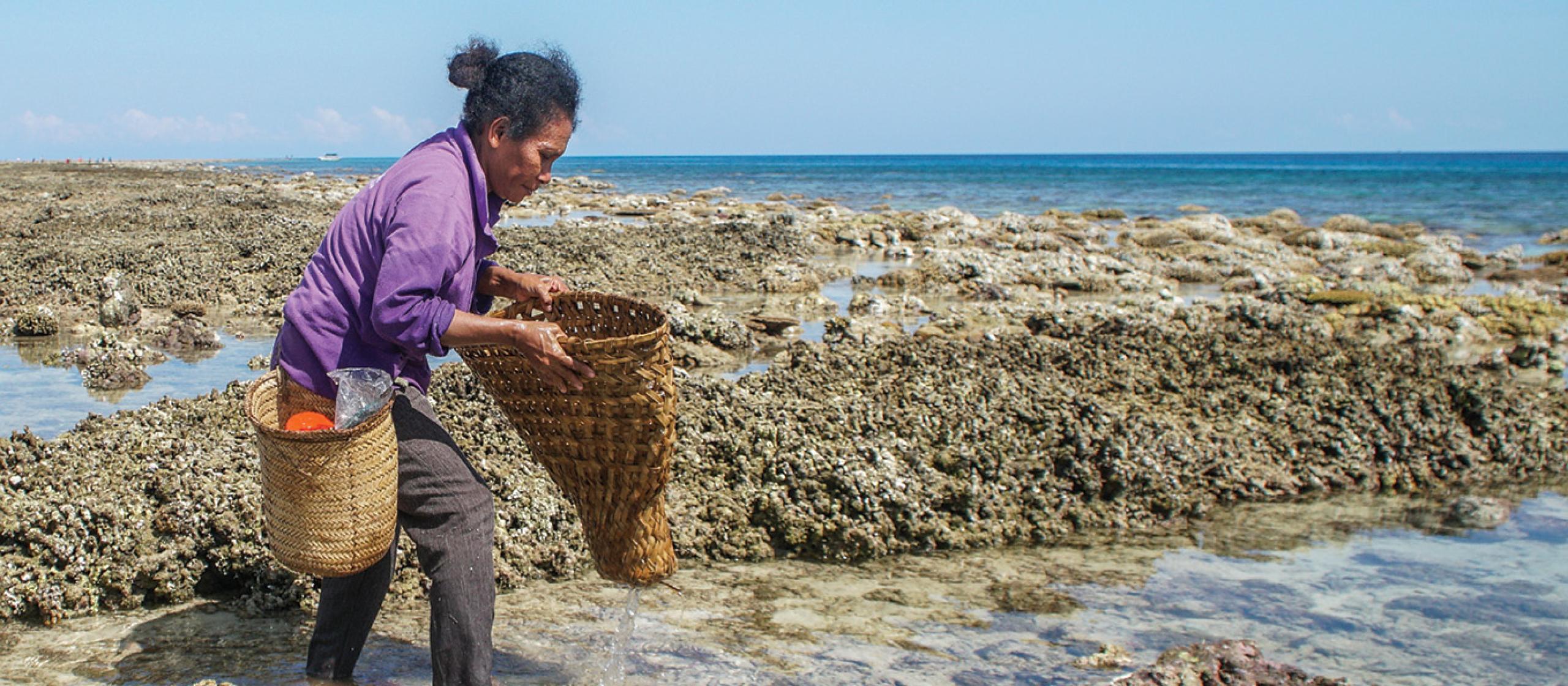To help draw attention to the role and importance of small-scale fisheries, the United Nations has marked 2022 as the International Year of Artisanal Fisheries and Aquaculture.
For ACIAR Research Program Manager for Fisheries, Professor Ann Fleming, this is good news. Most ACIAR-supported fisheries research is focused on supporting the livelihoods of those dependent on small-scale fisheries, including both marine and inland fisheries. Knowing its importance to food security and its value to people’s culture and community economies helps ensure research is prioritised appropriately.
‘We do need to collect evidence that demonstrates the significance of small-scale fisheries and traders, who are often women, and their importance to food security, nutrition and income. We are focused on understanding the role of fisheries in contributing to resilient livelihoods in the face of climatic shocks and global disruptions such as the COVID-19 pandemic,’ Professor Fleming says.
‘And it’s important not to just focus on the collecting and harvesting of fish and other seafoods such as crustaceans, molluscs and seaweeds, but also their processing and trade. There’s a whole lot of enterprises and small business opportunities for people from diverse social identities that trade fish.’
While there is no internationally agreed standard definition of small-scale fisheries, Professor Fleming describes them as including subsistence fishing and the limited use of technology.
A matrix of factors that consider technical, social and cultural characteristics of a fishing activity can be used to help consider what is a small-scale fishery. This can include factors such as type of fishing gear, boat length and size, catch rates, significance of fishing as a livelihood and the ethnicity of the people fishing.
Preliminary findings from the FAO’s ‘Illuminating Hidden Harvest’ report, which is due out in late 2022, shed some light on the importance of small-scale fishing. It reports that 40% – or 37 million tonnes – of the global fish catch comes from small-scale fishing, with the proportion in Asia being much higher. So, while in one sense it is small in scale, in another, it is anything but small.



